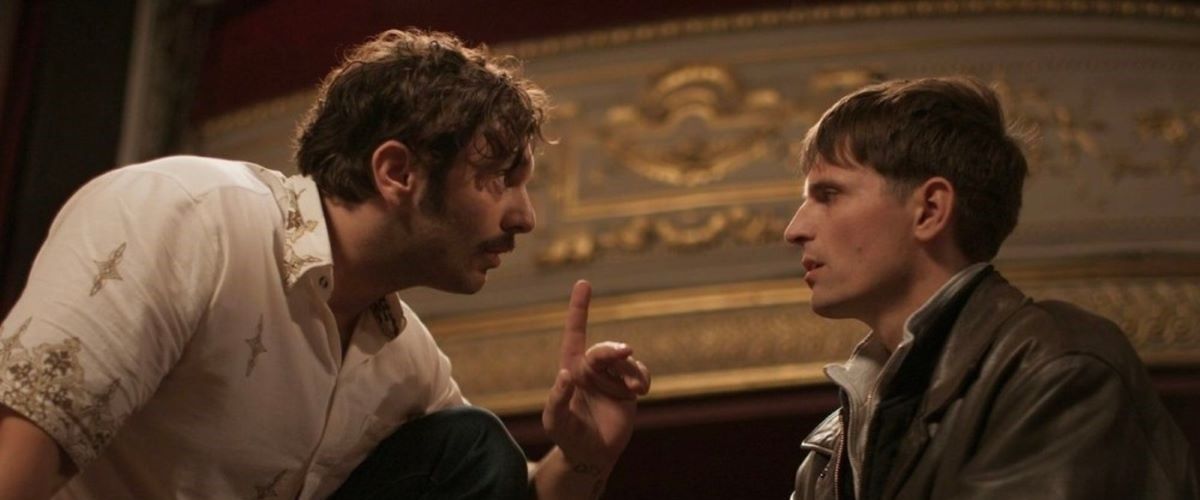
Yannick (2024) — Movie Review
- Apr 7, 2024
The peculiar French comedy “Yannick”, directed by Quentin Dupieux, portrays a hostage scenario as a strange and prolonged joke. Funnily enough, this all boils down in the middle of a horrendously atrocious stage drama. Yannick, brought to life by Raphael Quënard, disrupts an odd divorce comedy called “Le Cocu,” or “The Cuckold.” The twisted plot seems to revolve around a discontented husband (Pio Marmaï) and his wife (Blanche Gardin), who confesses to a “platonic” relationship with a certain guy (Sébastien Chassagne) dealing with stomach ailments.
From the outset, Yannick’s role feels like an arrogant intrusion. Halt! He ceases the play’s progression, airing his frustrations to the three actors on stage and his fellow spectators. The drama’s performers – insecure Paul (Marmaï), unfaithful Sophie (Gardin), and insignificant William (Chassagne) – try without success to send Yannick packing. Eventually, Yannick whips out a loaded gun and uses it to secure himself a spot on stage. The gun manifests as a feeble emblem of power, brandished by Yannick for an uncomfortably long time.
In the film, Yannick’s relationship with his fellow audience isn’t particularly clear – a baffling yet often funny ambiguity that’s a trademark of prolific writer/director Quentin Dupieux. Yannick’s narrative is hardly straightforward – he barges in, takes up far too much room and gradually turns the room into a chaos, disrupting ordinary social rules. He ultimately coerces Paul and his fellow stars to re-stage the play, tailoring it to Yannick’s peculiar standards. Although Yannick frustrates some members of the audience, he manages to earn an unlikely standing ovation at the end.

Yannick’s character and the raw humor around it have sparked some complex reviews. Some suggest that it’s a “meta” comedy and Dupieux’s response to his naysayers. Regardless of how valid this claim is, Dupieux's film has its moments of testing the viewer's patience. However, with Yannick at its center, it's overall a humorously blatant time-waster. Yannick, despite his seemingly unsympathetic nature, succeeds in charming some audience members. One even offers to let him spend the night, expressing that he doesn't seem like such a bad character after all.
Dupieux’s film neither justifies nor condemns Yannick's actions, instead using the character to add to the film's eccentric humor. Eventually, it's revealed that the building where the film unfolds is named Theatre Herbreteau, possibly a nod to Paris’s real-life Théâtre Hébertrot. The ending is filmed in a statically stretched out take, highlighting the wait for the conclusion. The characters, depicted more like sitcom figures than complex characters, are mostly influenced by the increasingly chaotic situation. Dupieux shows no interest in resolving things for his characters, which might either annoy or charm you, depending on how you react to his idiosyncratic comedy style.







